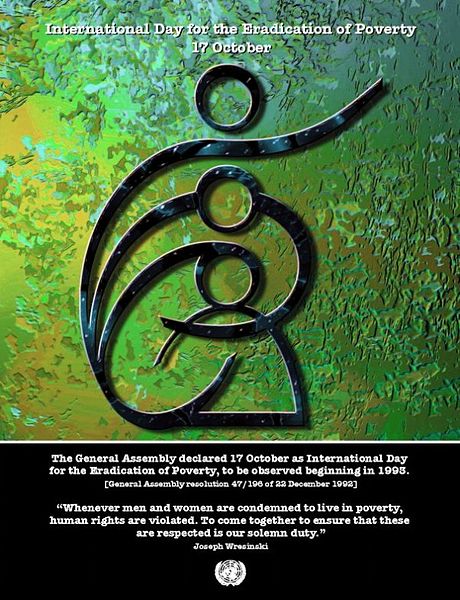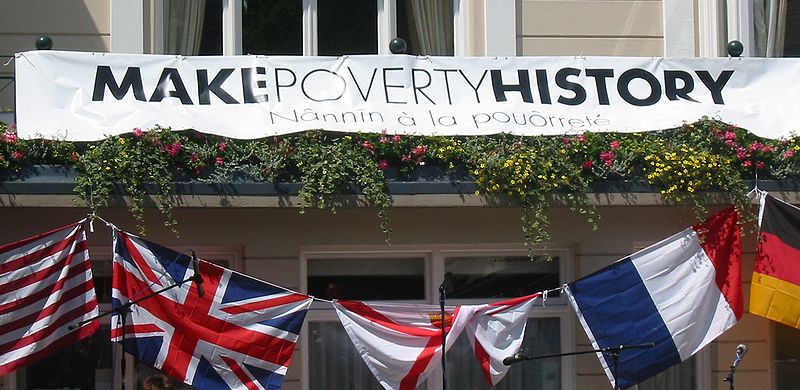Today, October 17, is the International Day for the Eradication of Poverty, established by the United Nations in 1993. Eliminating poverty may seem like an unattainable goal, but much can be accomplished by a more equal distribution of the world’s resources. According to UN studies, women represent 70% of the world’s poor people. Although women do 66% of the world’s labour, according to The World Bank, they only earn 10% of global income and own a mere 1% of the world’s land. According to The Canadian Feminist Alliance for International Action, much of this inequality exists in Canada, where, women (including part-time and part-year workers) earn 64.0% as much as men and Aboriginal women earn 46% as much as men.
At Nellie’s we view poverty as a form of violence against women. In 2004 we completed our position paper on this topic, and wrote about women experiencing multiple oppressions such racism, ableism, and raising children as a single parent, which all impact their experience of poverty. Nellie’s works in partnership with programs such as the December 6 Fund , which provides interest-free loans to help women pay rent and clear debts. We are campaigning against the Ontario Government’s plan to cut the Community Start-Up and Maintenance Benefit, a payment that helps women pay for heat and electricity so they can avoid eviction. We are also involved with the Right to Housing Campaign, led by the Advocacy Centre for Tenants, Ontario. This campaign is based on the fact that under the Canadian Charter of Rights and Freedoms, we all have a right to adequate, affordable housing. Nellie’s is organizing a public forum on our right to housing on November 22, which is National Housing Day.
If you’d like to help eradicate poverty, you can write to your Member of Provincial Parliament and demand an end to the cuts in social assistance, especially the Community Start-Up Benefit. You can commemorate the International Day for the Eradication of Poverty by joining The Ontario Coalition Against Poverty at their protest of social assistance cuts today at 12 noon (details here). They are planning mass applications for the Start-Up Benefit, followed by a lunch and a march on the Provincial Government to deliver the applications.
Ending women’s poverty will help the whole community. Let’s make it happen!






